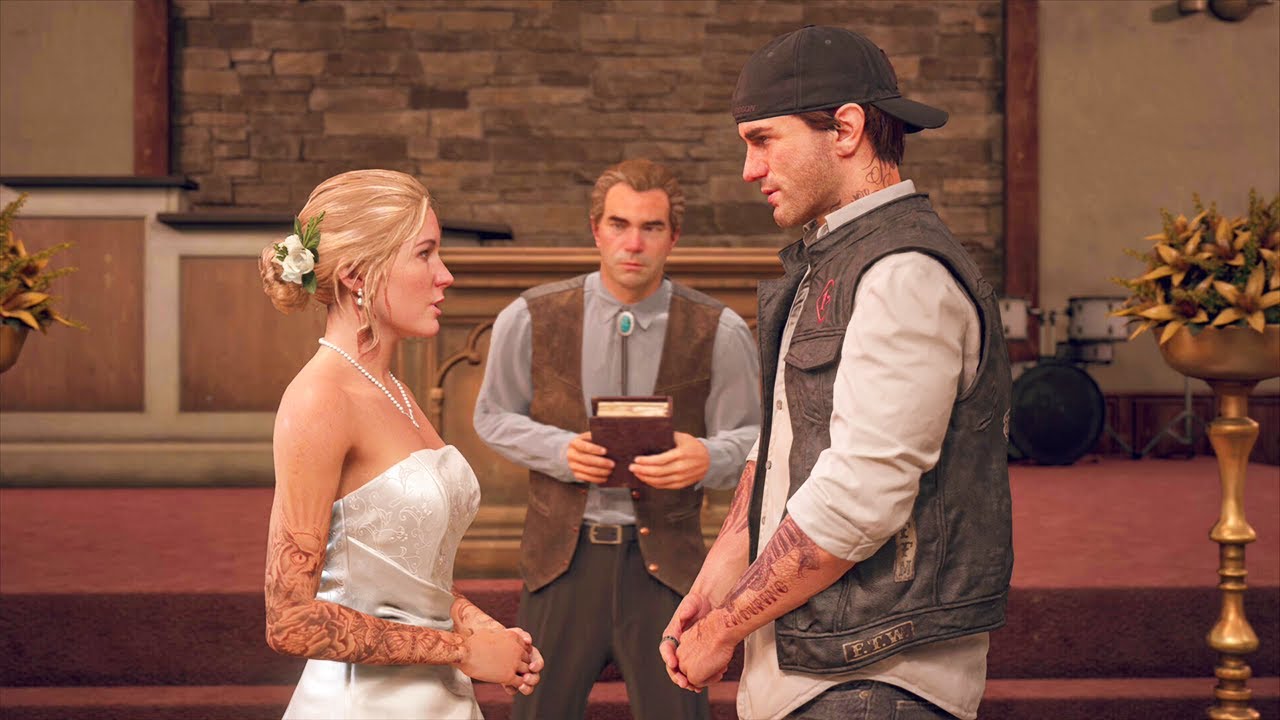During a recent Reddit AMA, Days Gone voice actor Sam Witwer (who portrayed Deacon St. John) blamed some of the game’s negative reviews on journalists that didn’t finish the game.
“You’re asking me about the review world. That’s not quiiiite the audience,” Witwer says. “I read a review today from a website/publication that will remain nameless. In it, the horde mechanic, the show-stopping center piece of the game, it wasn’t mentioned once. Not ONCE. There were other tells, but it was pretty clear that this reviewer played the game for several hours and then wrote his review. He did not complete it.”
Witwer goes on to say that the “slow burn” nature of Days Gone means that it’s the type of game that may not lend itself to game reviews and what he presumes to be the nature of the video game review industry.
“Days Gone was always meant to be a slow burn game and story,” Witwer says. “For better or for worse, it was designed for you to take your time. The best story beats and the best game play happen much later in the game, and it’s clear that the nature of game reviews and this slow-burn philosophy of game development are not compatible. These journalists rush in, they do NOT take their time, they do NOT play the game on the terms the game presents, because it is their job to put out an article on a deadline. I think that’s not only too bad, but misleading to actual audience members who would like to read an actual review of what we actually did.”
You can read the rest of Witwer’s statement here, and you probably should given that his argument is based on experiencing the full context the thing you’re talking about.
As some are already pointing out, the problem here isn’t that Witwer is criticizing a critic. He’s right to not name the critic he’s referring to given that doing so could trigger a harassment campaign, but there’s nothing inherently wrong with disagreeing with a review. It’s also obviously fine to disagree with a point that a reviewer does or doesn’t make, especially if you weigh in with a counterpoint of your own.
The biggest problems with Witwer’s statements are the generalizations he makes and the way he uses that generalizations to justify a viewpoint that is disproven (or strongly contradicted) by more logical evidence.
Is it possible that a reviewer didn’t finish Days Gone and that their negative review of a game was based on the elements of the title they didn’t see? Absolutely. Maybe it didn’t happen in the particular instance that Witwer is referencing, but it’s not like it’s impossible such a thing could happen.
However, Witwer is implying that the general nature of video game reviews means that there is a significant enough number of journalists who do not play a game long enough to enjoy a slower game or one that maybe just takes a while to “get good.”
However, slower paced video games like Red Dead Redemption 2, Spiritfarer, Oxenfree, and even something like Animal Crossing: New Horizons (to name a few slightly more recent examples) all garnered better average review scores than Days Gone. Games that share quite a few design similarities with Days Gone (which include PlayStation exclusives Marvel’s Spider-Man and Ghost of Tsushima) also received higher overall review scores from critics.
As for games that start slow and get better as they go on, titles like Mass Effect, Final Fantasy 13, and Persona 5 (which were also often criticized for that reason) also all received higher aggregate review scores than Days Gone. Are those selective examples? Yes they are, and there have obviously been slower games or game similar to Days Gone that received slightly more negative or mixed reviews. Are all those games objectively better than Days Gone? Of course not, but in their own way, the critical success of each game relative to Days Gone helps show that games similar to Days Gone aren’t somehow doomed to fail when it comes to reviews.
Rather than list the many, many reasons that Days Gone reviews were a bit more mixed, it’s enough to say that the average aggregate Days Gone review score suggest that there were problems with the game that went beyond the implication that a significant number of reviewers just didn’t bother to “properly” play the game. Even more positive reviews of the game highlighted some of those issues. It just seems that they didn’t necessarily bother that particular reviewer quite as much.
It’s unfortunate when people love a game that’s slightly more mixed reviews and production problems mean that it probably won’t get a sequel, but it’s not a reviewers job to ensure that every game that might have adamant fans will be a critical success. Sometimes, there are just games (or any piece of entertainment) that a smaller amount of fans feel incredibly passionate about. In this instance, it feels like we’re seeing passionate fans (including some who participated in Days Gone‘s development) express their disappointment that more people just don’t feel as passionate about the game as they do.
